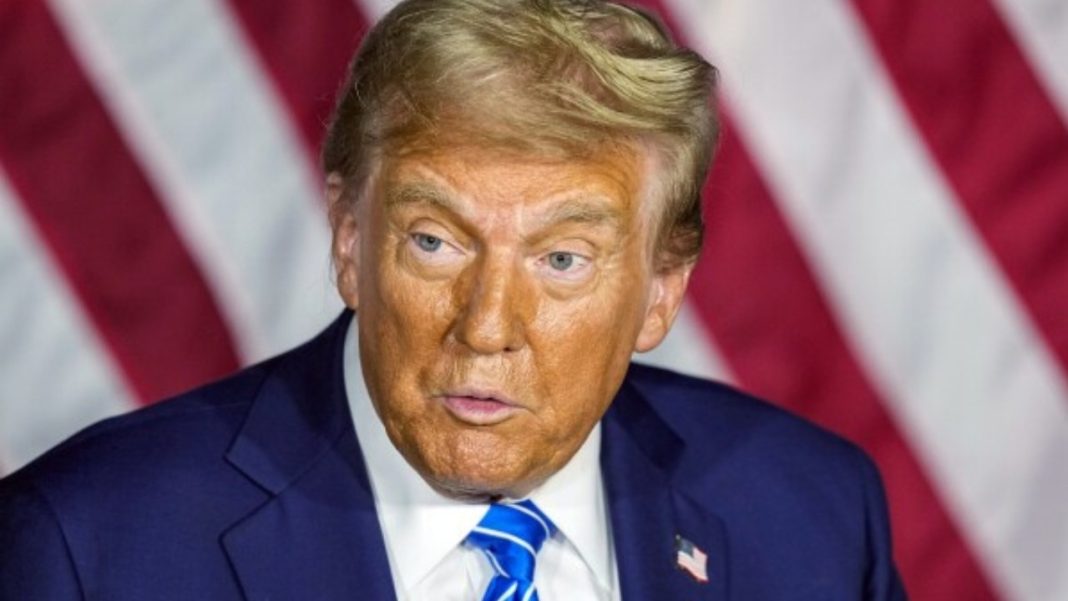The political landscape in the United States, often a subject of global fascination and scrutiny, recently witnessed an escalation in rhetoric that has sent ripples across international borders, including India. Former US President Donald Trump, known for his unvarnished and often provocative statements, called for seditious trials against Democrats whom he claims are encouraging US troops to refuse orders. The gravity of such a suggestion, particularly the invocation of a charge “punishable by death,” highlights a concerning trajectory in American political discourse and warrants a closer examination from an Indian perspective.
The Escalation: Sedition and Military Discipline
Donald Trump’s latest remarks surfaced during a campaign rally, where he asserted that Democrats advocating for US military personnel to disobey orders should face seditious trials, a charge that carries extreme penalties, potentially including death, under US law. While the specifics of the “orders” Trump referred to remain somewhat generalized, his long-standing criticism of what he perceives as a weakened US military and his challenges to the existing defense establishment provide some context. His accusations often target Democratic figures who have voiced opposition to certain military engagements or policies, interpreting their dissent as undermining troop morale or discipline.
The concept of sedition, in the American legal framework, involves conspiring to overthrow the government or to levy war against it, or inciting rebellion against governmental authority. While the threshold for proving sedition is exceptionally high, Trump’s use of the term itself, coupled with the mention of capital punishment, is deeply inflammatory. It raises fundamental questions about freedom of speech, political dissent, and the integrity of military command within a democratic society. Such rhetoric, emanating from a former commander-in-chief, possesses a unique weight, influencing not only domestic debates but also international perceptions of American stability.
Constitutional Implications and Political Fallout
Trump’s comments immediately ignited a firestorm of criticism from across the political spectrum, with Democrats condemning the remarks as dangerous and anti-democratic. Legal experts have largely dismissed the feasibility of such sedition charges, citing constitutional protections for free speech and the specific, high bar for proving incitement to rebellion. However, the political fallout is undeniable. The rhetoric further polarizes an already deeply divided nation, pushing the boundaries of acceptable political discourse and challenging foundational democratic norms.
The US military operates under the Uniform Code of Military Justice (UCMJ), which clearly outlines the duties of service members and the severe consequences for disobeying lawful orders. However, the UCMJ also has provisions for unlawful orders, offering complex legal and ethical considerations. Trump’s broad accusation blurs these lines, potentially creating confusion and distrust between political leadership and the armed forces. As one commentator, political analyst Dr. Evelyn Reed, observed, “When a former president suggests capital punishment for political opponents over perceived military insubordination, it’s not merely political grandstanding; it’s an erosion of democratic principles and a dangerous normalisation of extreme retribution.” This statement encapsulates the profound concern many observers hold regarding the increasing intensity of political speech in the US.
An Indian Lens: Observing US Political Extremism
From India, a fellow democratic nation with a robust military and a keen interest in global stability, such developments in US politics are observed with a mix of concern and analytical scrutiny. India and the US share a strategic partnership built on mutual democratic values, economic ties, and shared security interests. The stability and integrity of American institutions, including its military and democratic processes, are therefore of significant importance to New Delhi.
Extreme political rhetoric in a major global power like the US can have far-reaching implications. It impacts the perceived reliability of the US as a global leader, influences international alliances, and sets a precedent for how political disagreements are managed. For India, which navigates a complex geopolitical landscape, a stable and predictable US is a crucial ally. The notion of internal political figures calling for sedition and death penalties against opponents within a major democracy is unsettling, raising questions about the resilience of democratic institutions and the future trajectory of US foreign policy. While the immediate legal ramifications of Trump’s statements might be minimal, their symbolic weight and potential to further fracture American society are issues that resonate deeply in democracies worldwide, including India, which watches closely as its key strategic partner grapples with escalating political rhetoric.




